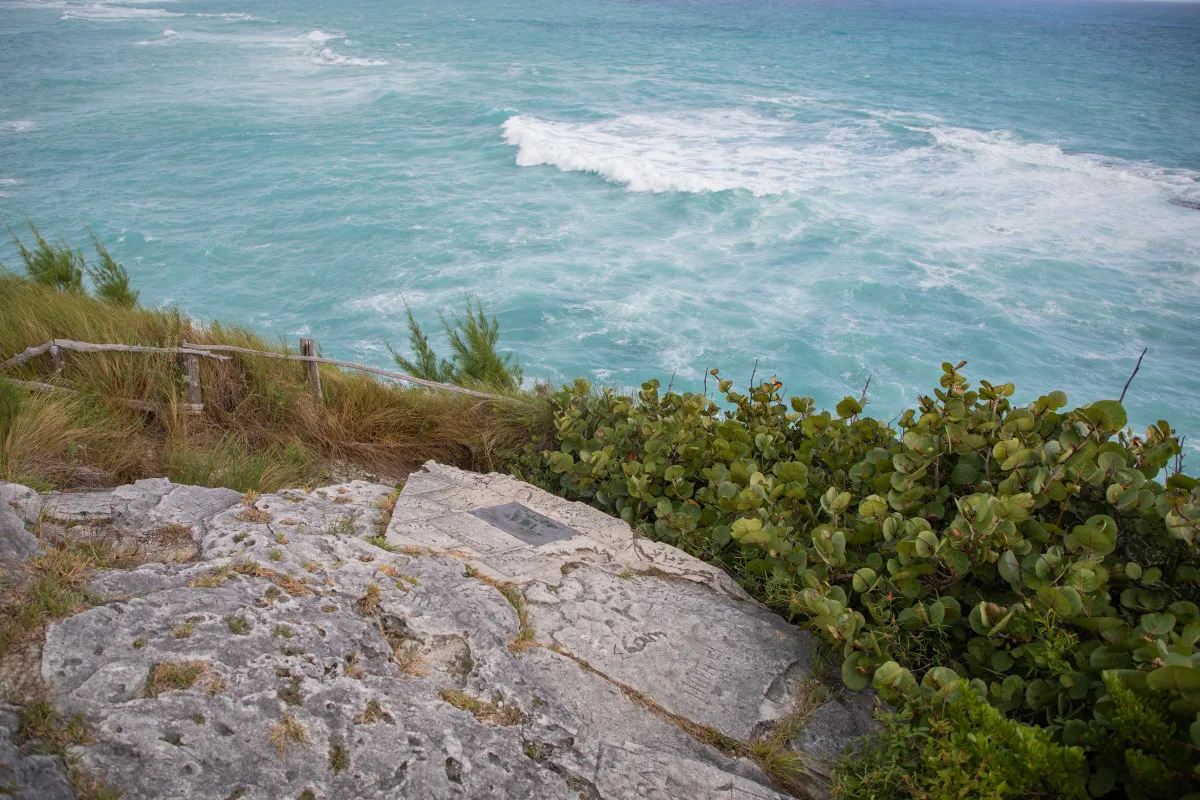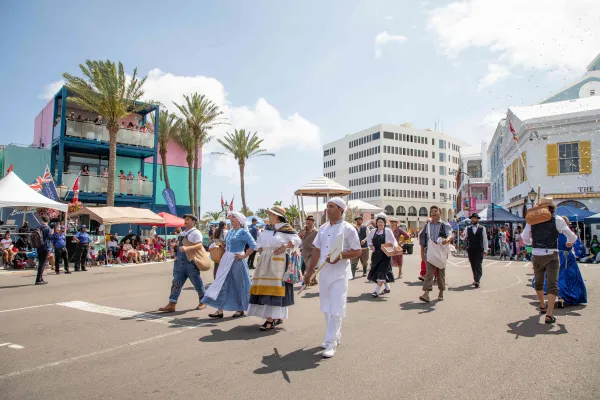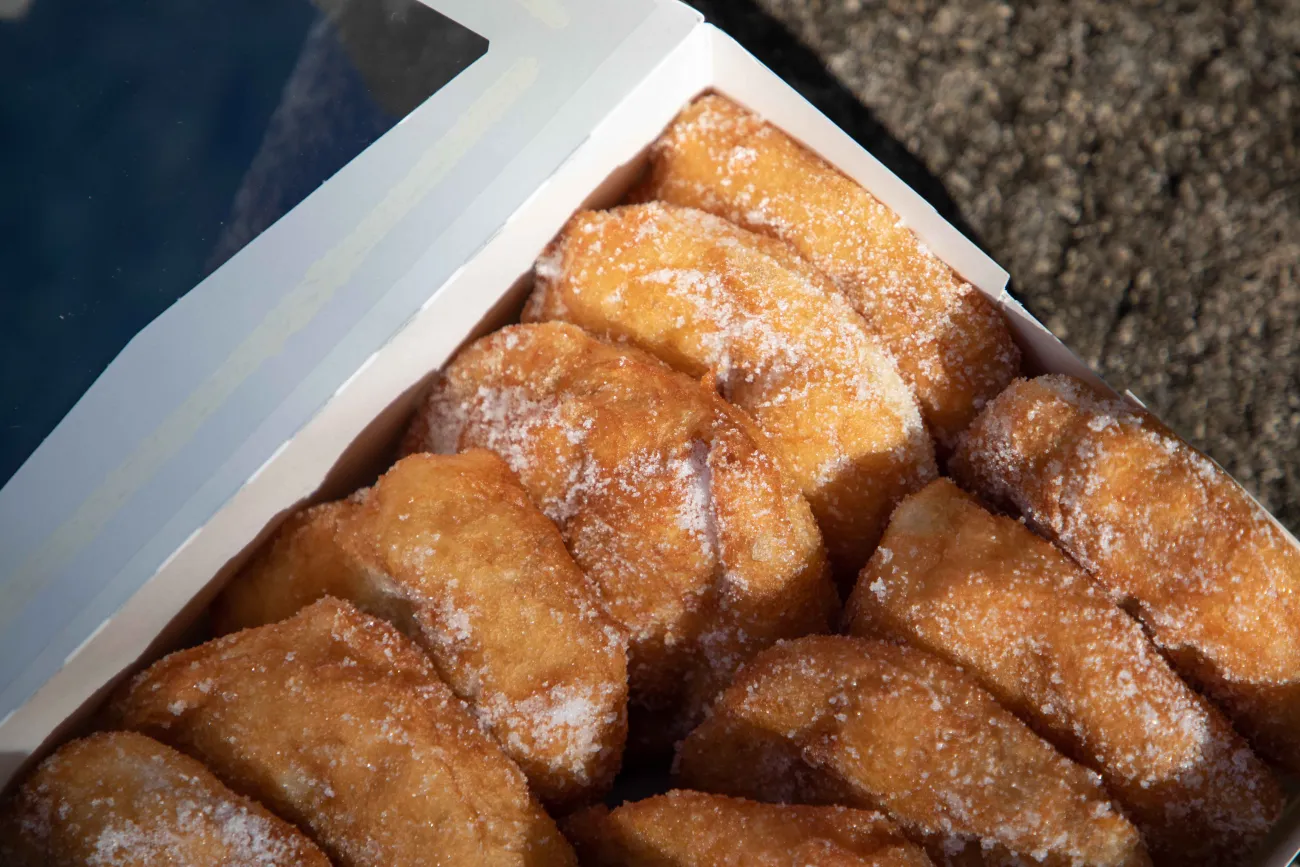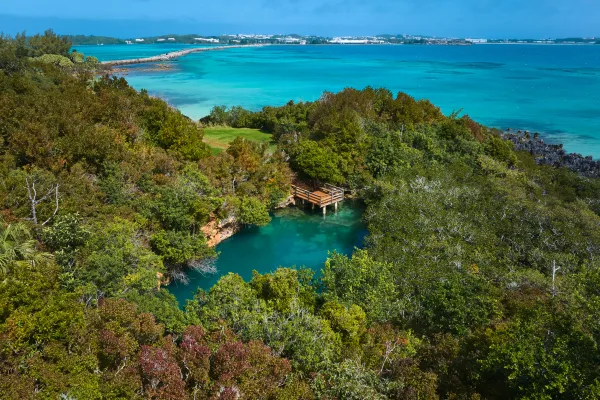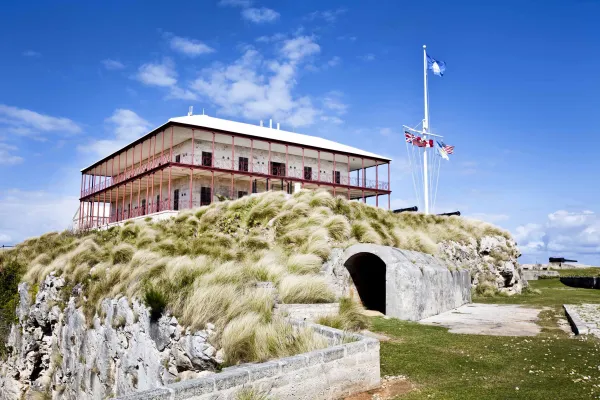Wander the farmers markets, savour the food, or catch a parade and you’ll start to feel it. A rhythm. A flavour. A proud presence that quietly hums through the island’s soul. This is the imprint of Bermuda’s Portuguese community – particularly those of Azorean descent – a vibrant thread woven into the island’s cultural tapestry for nearly two centuries.
In a place shaped by centuries of seafaring and cultural exchange, the Portuguese story is both foundational and fascinating. It’s a tale of resilience, family, faith, and festa that continues to shape the Bermuda of today – and it’s one every curious traveller should experience firsthand.
Historical Snapshot: From the Azores to Bermuda
Portuguese sailors may have been the very first to leave their mark on Bermuda – literally. At Spittal Pond Nature Reserve, you’ll find Portuguese Rock, containing a mysterious inscription believed to be the earliest remnant of human recording found in Bermuda.
The letters 'R' and 'P' – dated 1543 – are engraved in the rock. Bermuda’s first English colonists thought the markings were made by shipwrecked Spanish sailors, so the rock was long known as "Spanish Rock". But a Portuguese historian showed evidence from a chronicled voyage that Portuguese sailors were shipwrecked there – and that 'R' and 'P' were Latin for 'Regium Portuguese' or Kingdom of Portugal. So finally in this century, the site is referred to more accurately as "Portuguese Rock".
